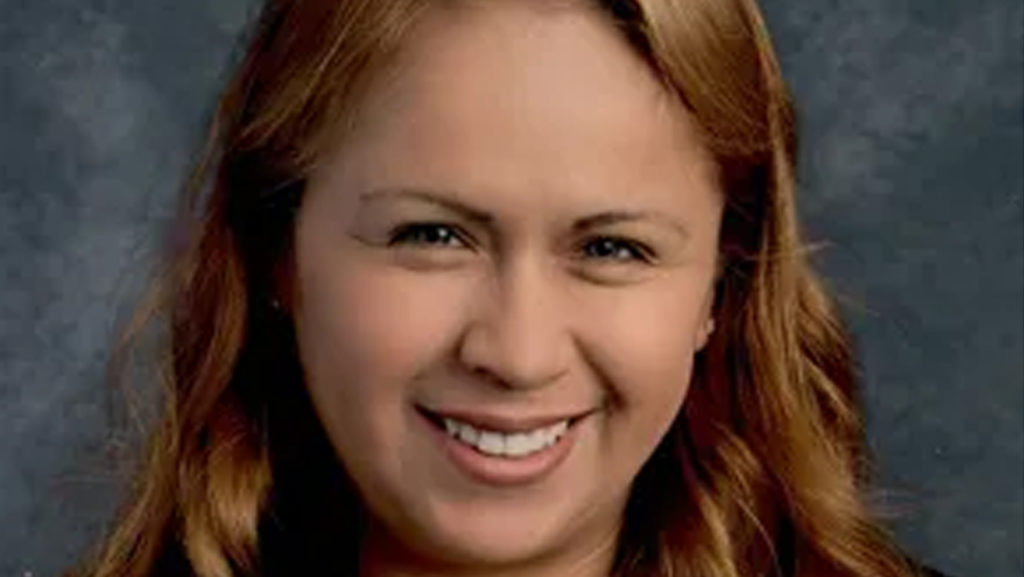by Maribel Vilchez, ENL, NBCT, North Thurston School District, PESB Member

For as long as I can remember my perception of the world comes from seeing it through the lenses of people’s languages and cultures. I’m fascinated by the richness of the sound of words in different languages, the diverse ways people interact, and the varied ways people do things. But what fascinates me the most, is that the majority of traditions seem to have similar motives. This I would say makes us more similar than different. For instance, in many Latin American countries, families celebrate the15th birthday of a girl a “Quinceañero” while in the US and Canada families celebrate the sweet 16th. Both cultural traditions honor the new phase in a teenager’s life. Each tradition has details that makes them “different”, but the truth is that both stem from the love of families for their children. This personal observation drives my interactions with parents, teachers and/or students. It sparks my curiosity to want to know more about them. This is also true in my classroom. Through my instruction, I represent our class’ diverse backgrounds. My goal is that my kids connect with me and with our class experiences. I create a safe environment where we learn about each other and where my students feel empowered to share who they are. They feel confident to highlight similarities or to ask when something is new or simply “different.”
Knowing our students and their families allows us to make connections and build relationships. When students can connect and see themselves in the adults around them, they thrive, they have hope, and are empowered. In our state, only 11% of our teachers represent our diverse student population (50%) Equitable representation goes beyond a percentage. As educators we can be our diverse students’ voice. We can empower our students. One way to do this, is to join efforts to diversify our teaching workforce. By having more diverse teachers in classrooms, we most likely guarantee that different cultures are not perceived as foreign. Diverse educators are part of the school culture and students who share diverse backgrounds feel that they belong and are empowered to be leaders. There is nothing healthier than a society made up of human beings with ideals and desire to be better.
Many of my students receive English Language services. As an educator this means, that I need to provide the labels for the vocabulary of the language they are learning. Every student has a rich background and many of them may already know the content, but they need the words to demonstrate their understanding. I use of high-yield instructional strategies to support my students learning. My students need comprehensible input (Krashen), so I use visual representations, hand gestures, repetition, etc. Imagine you don’t speak Liki (a language from the coast of Indonesia) and it was imperative to understand a message. Wouldn’t images, gestures and/or repetition support your communication? These are some of the strategies our students need to label their new language: English. So, if this is what OUR students need, has our educational system equipped all educators to provide such strategies?
In my opinion, one of these equipping systems, is Dual Language (DL) Education. Yes, I may be biased due to my love and passion for languages and people, but brain research, societal benefits, job market, global economies, etc. support my belief. Our state’s demographics include students who speak more than one language who have the right to preserve their assets (language and culture) to enhance their learning. We also have monolingual students who are being deprived from the opportunity of expanding their cognitive abilities and their multicultural competencies to build deeper relationships, hence being able to look beyond the surface, stereotypes or assumptions. Take this example: many parents from other countries would never discipline their children while on school grounds because they see this as undermining teachers’ authority. Many people may make assumptions and judge these parents for their “lack of responsibility,” while on the contrary, this behavior for them is a sign of respect. Wouldn’t knowing this fact, helps us better understand each other? As far as becoming biliterate is concerned, the advantages are countless. The world is ahead of our monolingual educational system, and our U.S. students are at clear disadvantage if they want to compete with the rest of the world. The world does not have borders when it comes to opportunities. So, why are we limiting our most valuable human resources?
